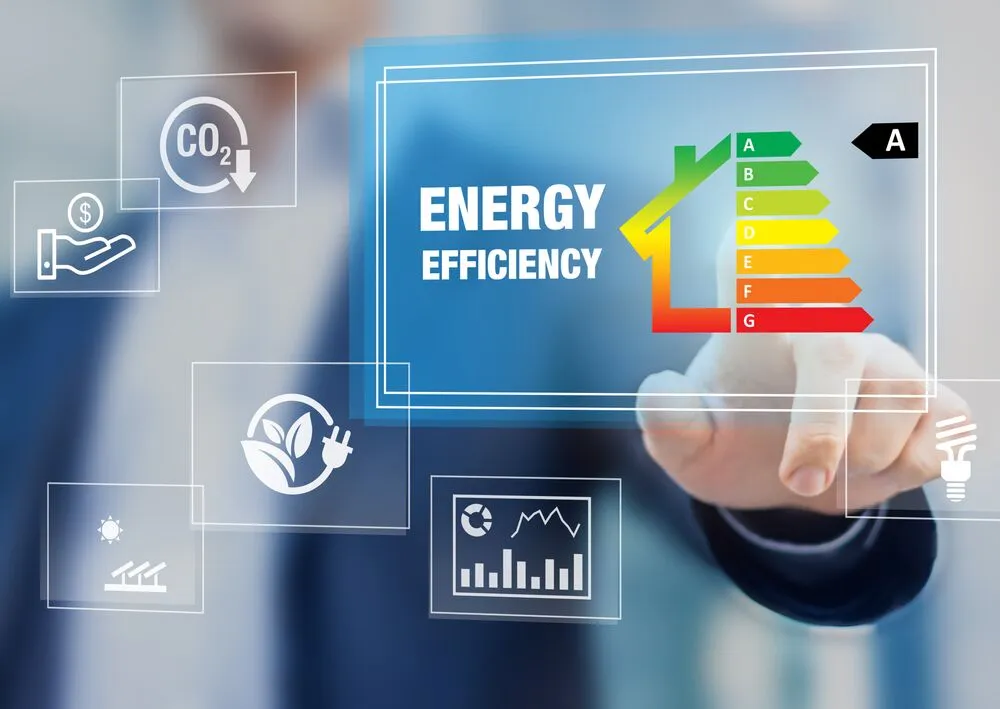EN 62974 Energy Efficiency of Smart Metering Systems
The European Standard EN 62974 provides a framework for the measurement and assessment of energy efficiency in smart metering systems. This standard is crucial for ensuring that devices comply with stringent energy-saving requirements, thereby contributing to sustainability goals.
Smart meters are increasingly becoming an integral part of modern homes and businesses due to their ability to provide real-time data on electricity consumption. However, the energy efficiency of these devices must be carefully evaluated to ensure they do not inadvertently increase overall power usage. EN 62974 offers a standardized approach to testing that helps manufacturers design products which are both efficient and reliable.
The standard covers various aspects including the accuracy of measurements, power consumption during operation, standby mode, and communication interfaces. Compliance with this standard ensures that smart meters can accurately report energy usage without consuming excessive electricity themselves—a key consideration for any sustainable technology.
Testing according to EN 62974 involves several steps aimed at evaluating different parameters such as active power consumption under various load conditions, apparent power consumption during communication events, and the overall efficiency of the system. These tests are conducted using specialized equipment designed to simulate real-world operating environments accurately.
This standard is particularly important for ensuring interoperability between different devices within a smart home or building network. By adhering to EN 62974 guidelines, manufacturers can guarantee that their products will work seamlessly together while maintaining optimal performance and energy savings.
In summary, compliance with the requirements outlined in EN 62974 is essential for any company involved in designing, manufacturing, or supplying smart metering systems. It not only helps meet regulatory obligations but also enhances product quality through rigorous testing processes that focus on enhancing efficiency and reducing waste.
Benefits
Compliance with EN 62974 offers numerous advantages for manufacturers, suppliers, and consumers alike. For companies developing smart metering systems:
- Better Product Quality: Rigorous testing ensures that only high-quality products reach the market.
- Enhanced Reputation: Meeting international standards can significantly boost a company’s reputation in competitive markets.
- Regulatory Compliance: Ensures adherence to local and international regulations governing energy efficiency.
For suppliers looking to enter new markets, meeting EN 62974 provides an edge over competitors by demonstrating commitment to sustainability. Consumers also benefit from more efficient devices that help reduce energy costs and environmental impact.
Why Choose This Test
- Comprehensive Evaluation: EN 62974 provides a thorough assessment of both the operational and standby power consumption of smart metering systems.
- Industry Recognition: Compliance with this standard is recognized globally, enhancing market credibility.
- Interoperability: Ensures that devices work well together within larger networks, improving overall system performance.
- Sustainability: By focusing on energy efficiency, EN 62974 supports broader sustainability goals.
The comprehensive nature of this testing ensures that smart metering systems are not only reliable but also environmentally friendly. This is particularly important as the use of such devices continues to grow, making it critical to ensure they contribute positively rather than negatively to our energy landscape.
Customer Impact and Satisfaction
The implementation of EN 62974 has a direct impact on customer satisfaction by delivering smart metering systems that are both efficient and reliable. Consumers benefit from lower utility bills due to reduced energy waste, which translates directly into cost savings. Additionally, the accuracy of measurements provided by these devices allows customers to make informed decisions about their consumption patterns.
For businesses adopting smart meters, compliance with EN 62974 can lead to significant reductions in operational costs through better management of resources. Moreover, satisfying regulatory requirements enhances trust between companies and their clients or partners, fostering long-term relationships built on reliability and integrity.
In summary, adhering to the principles set forth by EN 62974 not only meets legal obligations but also contributes positively towards achieving broader sustainability objectives. This ultimately leads to higher levels of customer satisfaction across all sectors involved in smart meter technology.





